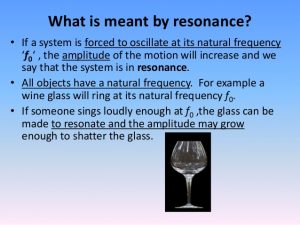…embracing our fallibility not only lessens our likelihood of erring , but also helps us think more creatively , treat each other more thoughtfully , and construct freer and fairer societies .
Schulz, Kathryn. Being Wrong: Adventures in the Margin of Error (p. 18). HarperCollins. Kindle Edition.
Previous posts:
- Echo Chambers
- Echo Chambers REALLY?
- Echo Chambers :The Importance of Being Wrong
- To err is human; to admit it, superhuman
This is my 5th post on the subject of echo chambers. If you haven’t read the previous posts or just don’t want to do so, below is a brief summary that will help get you to the subject of this post.
- Echo chambers are a natural consequence of human interaction and are ubiquitous in our society. They have potential for good or ill. Social media has unleashed the malevolent potential of echo chambers which bears much responsibility for our divided, polarized culture.
- It is too simplistic to assign echo chambers sole responsibility for the deep division in our country. To do so is akin to assigning parents sole responsibility for the their children’s outcome. Echo chambers are incubators for our development as human beings, for good or ill.
- Our desire for rightness leads us to echo chambers where our “rightness” is amplified and error is filtered out. Like a butterfly from a cocoon, we emerge in the beauty of our rightness, confirmed in our infallibility.
- The most significant human trait that sustains and encourages the proliferation of and participation in harmful echo chambers is our unwillingness to entertain the possibility that we may be wrong. Without awareness and acceptance of our human fallibility, we will be vulnerable to the ill effects of echo chambers.
- The challenge is how do we cultivate a healthy understanding and acceptance of our “wrongness”?
First, some clarification. These posts are not written to initiate/encourage a movement against echo chambers. My motivation for writing grows out of personal participation in my own echo chambers and significant life experiences that revealed my fallibility. Through no effort of my own, I have come to understand the impact and importance of echo chambers in my life. If is my purpose to present each reader with an opportunity for reflection and introspection. This is personal not corporate or political. To use a biblical metaphor, I hope that individuals will become leaven.
I believe it can be helpful to use the concept of natural frequency to understand the dynamics of echo chambers and how acceptance of our fallibility can reduce, perhaps eliminate, the negative/destructive aspects of echo chambers.
Natural frequency is the frequency at which a system tends to oscillate in the absence of any driving or damping force.1
With the understanding that I am not a physicist, let me propose an analogy of natural frequency to the physics of echo chambers.
Supposing the natural frequency of the echo chamber in which we reside is ƒ [rightness]. An external application of ƒ[rightness] will cause the echo chamber to oscillate and achieve resonance i.e. resonate with us. In simple terms, “they are playing our tune” or “on my wave length”.
So what’s the problem? The application of ƒ[rightness] at increasing amplitude can grow enough to, as in case of a glass, shatter the object. Perhaps my analogy breaks down with destruction, but I think, at a minimum, it supports Nicholas Kristof’s assertion: Whatever our politics [et al], inhabiting a bubble makes us more shrill.
I do believe that if we are exposed to increasingly stronger reinforcement of our rightness, in the absence of any driving or dampening force, it will result in unhealthy (destructive) consequences. For the system (echo chamber) to achieve resonance and allow us to reside there healthily , there must be driving or dampening forces to protect the system.
It is my premise that awareness and acceptance of our human fallibility fills that requirement. I would also suggest that a natural frequency analogy supports the idea that individuals acting as leaven can be a force that prevents destructive outcomes.
Hopefully, this discussion has help to explain the importance of awareness and acceptance of our human fallibility. Unfortunately, in the face of our unrelenting desire to be right, the question of how to we achieve awareness and acceptance of our human fallibility remains. Maybe next time?
